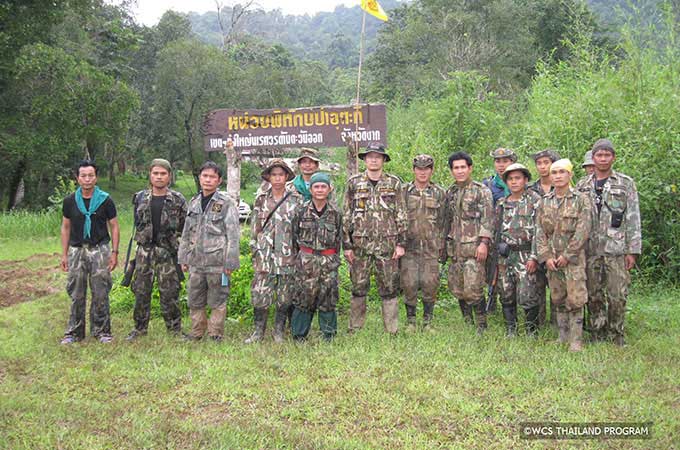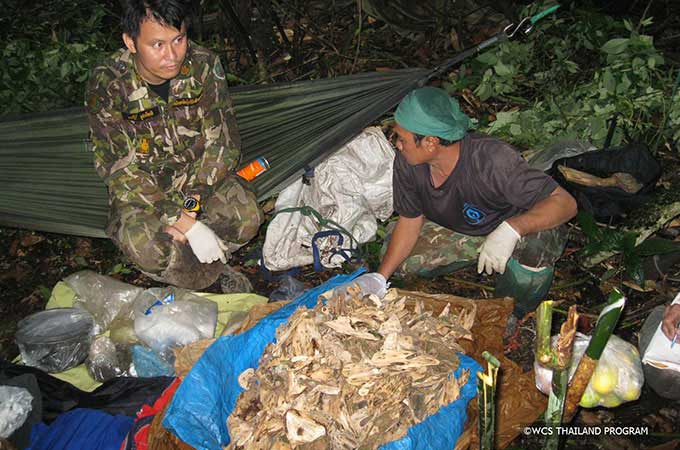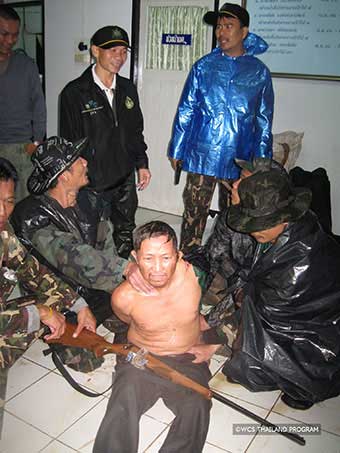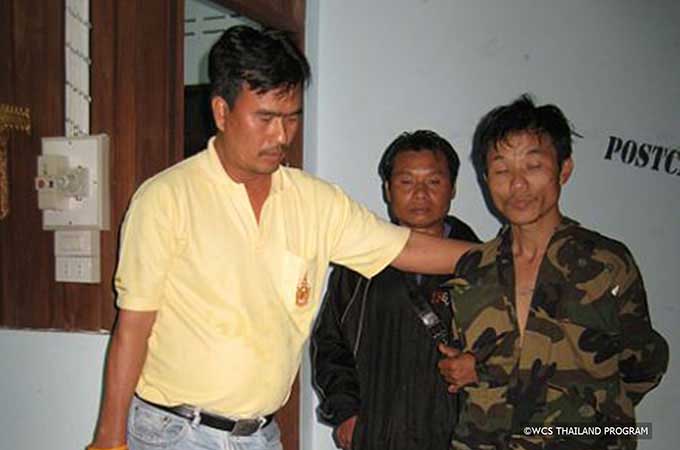Illegal hunting in Thailand
Illegal hunting is a serious threat in Thailand with many illegal poaching cases such as wildlife trade and wildlife consumption. This is driven by high demands in the black market resulting in high prices of products, especially from tiger parts. In addition, other wildlife species are also threatened from illegal poaching such as elephant poaching for ivory.
Coping with illegal hunting by intelligence gathering
WEFCOM (Western Forest Complex) is a world natural heritage site in Thailand and is the habitat for many key wildlife species such as tigers, gaurs, bantengs, sambar deer, muntjacs, serows, etc. In 2011, Thungyai Naresuan East Wildlife Sanctuary (TYE), which is located in the core area of WEFCOM, an incident of tiger poaching using poison was found. TYE authorities were informed from HKK patrol rangers that they had encountered and fought with tiger poachers which had started in Huai Kha Khaeng Wildlife Sanctuary (HKK). The tiger poachers were driven to TYE but they still could not arrest them. HKK and TYE rangers planned and worked together to arrest these tiger poachers, and after encountering and fighting them, they finally succeeded in arresting them. One Vietnamese and one Hmong poacher got caught with the obvious evidence that links them to tiger poaching in the sanctuary.
 |
 |
|
Patrol teams from Thungyai Naresuan East and Huai Kha Khaeng Wildlife Sanctuaries.
|
 |
 |
| A Hmong poacher was arrested. |
A Vietnamese poacher was arrested. |
Umphang Wildlife Sanctuary (UMP) is surrounded by many villages and refugee camps with connected roads; thus, patrols cannot protect natural resources thoroughly. However, telling information to authorities will help them monitor suspects. There are some successful arrests based on local people’s information.
Case I: One anonymous individual told authorities that there were carcasses of reserved and protected wildlife illegally owned at the grocery in Umphang district. Therefore, UMP and local military authorities came to investigate that shop and heads of Eld's deer, gaur and sambar deer were found which are listed in Wildlife Reservation and Protection Act (1992) as reserved or protected wildlife.
Case II: Antlers and horns (Eld’s deer, sambar deer, gaur, banteng, serow and muntjac) were found decorated on the wall of a garage. Moreover, they also found great hornbills’ beaks. All are listed as reserved or protected wildlife. Case III: One anonymous individual told authorities that some poachers were going to sneak into HKK for hunting. Rangers patrolled around the suspected area and four offenders were arrested with evidence such as the head, butchered meat and skin of a wild water buffalo, a shotgun, bullets, and machetes.
WCS Achievement and Progressive Activities
WCS has conducted intelligence gathering with the Department of National Parks, Wildlife and Plant Conservation and other stakeholders by focusing on:
- Improving the intelligence system by working closely with local sectors which are supported by WCS.
- Achieving the mission efficiently and successfully by coordinating among local sectors.
- Systematically generating an intelligence database that will lead to the successful arrest of offenders.
- Supporting people who cooperate with our team to help monitor the offenders.
Intelligence in the Future
In order to strengthen law enforcement, intelligence is required as shown from the examples above. In addition, to prevent natural resources loss more than this, we also hope that
- Increasing intelligence intensity will disrupt the poaching process within the area.
- Intelligence cooperation will increase and expand among the areas or regions.
- Investigations will be able to gain evidence in order to arrest higher authorities that might be behind the scenes.